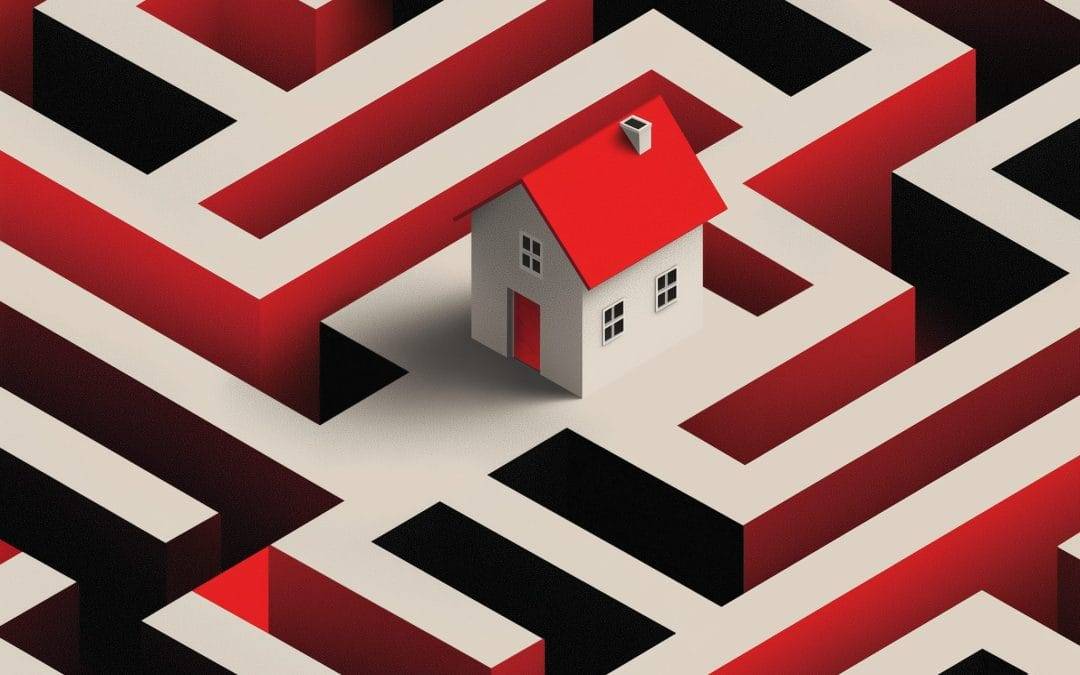Mortgages are the single most significant financial commitment most of us will ever make. Yet for many, they remain a fog of jargon, small print, and stress. If you’re wondering “how do mortgages work?” — you’re not alone. In this guide, I’ll strip away the confusion, explain the nuts and bolts of mortgages, and give you the knowledge you need to make informed choices.
What Exactly Is a Mortgage?
At its simplest, a mortgage is a loan you take out to buy a property.
- You put down a deposit (usually at least 5% of the property’s value).
- A lender, such as a bank or building society, lends you the rest.
- You then repay that loan over time — typically 20 to 40 years — with interest added.
If you don’t keep up repayments, the lender has the right to take back (repossess) your home. That’s why it’s crucial to understand how mortgages work before signing on the dotted line.
Key Parts of a Mortgage Explained
To understand mortgages, let’s break down the main components:
- Deposit
This is the chunk of money you put down up front. The bigger the deposit, the less you borrow, and the better the mortgage deal you’ll usually get.
- Loan-to-Value (LTV)
LTV is the percentage of the property value you’re borrowing. Example: On a £200,000 house with a £40,000 deposit, you borrow £160,000. That’s 80% LTV. The lower the LTV, the cheaper the interest rates tend to be.
- Interest Rate
This is the cost of borrowing. Mortgage rates can be fixed (stay the same for a set period) or variable (move up and down). Even a 1% difference in rate can mean thousands of pounds over the life of a mortgage.
- Term
The length of time you agree to repay the mortgage — often 25 years, though 30, 35, or even 40-year terms are becoming more common. Longer terms mean lower monthly payments but more interest overall.
- Repayments
Most mortgages are “repayment” mortgages: each month you pay back some of the loan plus interest. By the end of the term, you’ve cleared the debt. There are also “interest-only” mortgages, where you pay the interest each month and repay the capital at the end (more on this later).
Types of Mortgages
1. Repayment Mortgages
The most common type. Each monthly payment chips away at both the debt and the interest. By the end, you own your home outright.
2. Interest-Only Mortgages
Here, your monthly payments only cover the interest. The original loan must be repaid at the end of the term, often through savings, investments, or selling the property. These are higher risk and usually only available to higher earners or buy-to-let investors.
3. Fixed-Rate Mortgages
Your interest rate is locked for a set period (commonly two, five, or ten years). This gives certainty: your payments won’t rise, even if the Bank of England increases rates.
4. Tracker Mortgages
The rate moves in line with the Bank of England base rate plus a margin (e.g., base rate + 1%). When the base rate rises, your payments rise too.
5. Standard Variable Rate (SVR)
After a fixed or tracker deal ends, you usually roll onto your lender’s SVR. These rates are typically higher and can change at the lender’s discretion. Most people remortgage before reaching this stage.
6. Discount Mortgages
A variable rate set at a discount below the lender’s SVR. These can be cheaper but move unpredictably.
How Do Mortgage Payments Work?
Mortgage payments are usually monthly and consist of:
- Capital repayment (the original loan amount)
- Interest (the cost of borrowing)
For example:
- Borrow £200,000 at 5% over 25 years.
- Monthly repayment = around £1,170.
- Over the whole term, you’d repay over £350,000 in total — £150,000 in interest.
This shows why interest rates matter hugely. Even a half-per cent lower rate could save you tens of thousands.
What Affects the Mortgage Deal You Get?
Lenders weigh up risk before offering you a mortgage. Factors include:
- Deposit size (lower LTV = better rates).
- Credit history (missed payments or debt issues can limit options).
- Income and affordability (lenders check you can afford repayments under “stress tests”).
- Employment type (salaried roles are usually easier than self-employed or contractors).
- Property type (some lenders avoid unusual properties like ex-local authority flats or timber-framed homes).
Fees and Costs to Watch For
Mortgages don’t just involve monthly repayments. Budget for:
- Arrangement fees (sometimes called product fees) — up to £2,000.
- Valuation fees — the lender checks the property’s worth.
- Solicitor/conveyancer fees — legal work.
- Stamp Duty — depending on the property price (in England & NI; Scotland and Wales have their own systems).
- Early repayment charges — penalties if you leave a deal before it ends.
- Broker fees — ask your mortgage broker
Always weigh up the total cost, not just the interest rate. Sometimes a lower rate with a high fee is worse than a slightly higher rate with no fee.
The Mortgage Application Process Step by Step
- Work out your budget.
Speak to a mortgage broker to see what you can borrow and what monthly payments look like. Using an online mortgage calculator often provides inaccurate results.
- Get an Agreement in Principle (AIP)
This is a lender’s confirmation (subject to checks) of how much they’ll lend. It strengthens your position when house hunting.
- Find a property and make an offer.
Once accepted, you apply for the mortgage formally.
- Full mortgage application
You’ll provide payslips, bank statements, and proof of ID.
- Valuation and underwriting
The lender checks the property’s value and assesses your affordability.
- Mortgage offer
If approved, you’ll get a formal offer, usually valid for 3–6 months.
- Exchange and completion
Your solicitor handles contracts, and funds are released. You get the keys!
Should You Use a Mortgage Broker?
While you can go directly to banks, a good mortgage broker can:
- Search the whole market for the best deal.
- Access exclusive rates not available directly.
- Navigate complex cases (self-employed, foreign income, buy-to-let).
- Save time and stress.
Most brokers are free to you (lenders pay them commission), though some charge fees — always ask upfront.
What Happens If You Can’t Pay?
If you fall behind, contact your lender immediately. They may allow:
- Short-term payment holidays.
- Switching to interest-only temporarily.
- Extending your term to reduce payments.
Don’t ignore the problem — arrears can lead to repossession. Free help is available from charities like StepChange and Citizens Advice.
FAQs on How Do Mortgages Work
1. Can I get a mortgage with bad credit?
Yes, but options are limited, and rates will be higher. Specialist lenders may help.
2. What’s the minimum deposit?
Most lenders require at least 5%, although 10% or more opens up better deals.
3. How long does approval take?
From application to offer, it’s usually 2–6 weeks. Complex cases may take longer.
4. Can I pay off a mortgage early?
Yes, but check for early repayment charges. Many deals let you overpay up to 10% of the balance per year penalty-free.
The Bottom Line: How Do Mortgages Work?
A mortgage is simply a long-term loan secured on your home, but the devil is in the detail. Understanding how interest, repayments, and different mortgage types work can save you thousands — even tens of thousands — over the life of the loan.
- Bigger deposits mean cheaper rates.
- Shop around — don’t just accept your bank’s offer.
- Watch out for fees, not just rates.
- Consider using a broker for expert help.
Mortgages aren’t something to fear, but they are something to treat with respect. Get them right, and they’re your ticket to owning your home. Get them wrong, and they can become a costly millstone.
If you need guidance, working with an experienced mortgage broker can help you navigate the process smoothly and secure the best possible deal for your circumstances. With the right advice and preparation, that’s where The Mortgage Blog can help turn your dreams into reality. Contact us on 0333 335 6595 or message us to explore your options and get personalised advice tailored to your unique situation.























